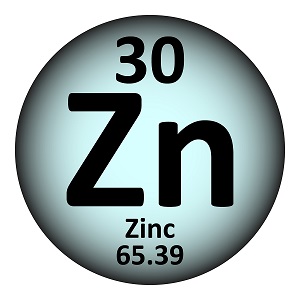- Home
- Herbal Remedies
- Zinc
The Role of Zinc in Candida Albicans Infections
Updated 11/05/2021
Written by Dr. Shalaka Samant, PhD
Is zinc supplementation a viable Candida treatment option?
Candida albicans
is a persistent pathogen in humans. It remains unclear why, but this
organism is able to sense changes in the host environment and adapt
itself accordingly to invade organs ranging in diversity from the vagina
to the heart valves. The ability of this fungus to change between
different forms, i.e. its morphological plasticity, is recognized as a
key virulence attribute. The two distinct, well-studied forms of this pathogen are the “yeast” or budding form and the elongate mycelial form (5).
During infections, the mycelial forms of C. albicans
are known to penetrate tissues causing damage to the host. Although the
mycelial form is considered more invasive and “pathogenic”, both forms are found in infected tissue
and both are thought to play a role in different stages of the disease
process. C. albicans mutants trapped in either form show markedly
reduced virulence (1-3). Understanding the environmental cues that
trigger this dimorphic switch is therefore important for arriving at
novel therapeutic strategies for targeting Candida infections.

Trace minerals including iron and zinc are essential for the survival of all living organisms. In fact, approximately half of all proteins and enzymes require trace minerals to confer function. These minerals are incorporated into metalloproteins and metalloenzymes used for critical biological processes, such as oxygen transport, cell growth and differentiation, and protection against oxidative stress.
Pathogens must acquire trace minerals in order to replicate and cause disease. However, during infection, the host sequesters key nutrients restricting access to these nutrients as a part of a process known as nutritional immunity (4). In response, successful pathogens use specific mechanisms to combat nutritional immunity and scavenge trace nutrients from their host.
Candida Albicans Scavenges Zinc from its Host
The mechanisms used by Candida albicans for scavenging zinc during infection have been studied extensively. During gastrointestinal infection the host is known to produce high levels of a zinc chelating protein that binds zinc with very high affinity exerting an antifungal effect by preventing zinc from being available to C. albicans. C. albicans, on the other hand, produces a zinc binding (“zincophore”) protein, with similarly high affinity for zinc, which allows the fungus to scavenge zinc from the host tissue (6). There is also evidence for zinc limitation during fungal invasion of the kidney, where C. albicans produces increased amounts of a zinc transporter and the above zincophore (7-10).
Zinc appears to not only be an important nutritional requirement for Candida albicans but is also believed to be an environmental cue for the dimorphic switch (11-13). These studies clearly show that zinc is an important trace mineral for C. albicans growth and infection. In fact efforts are being made to identify drugs which target zinc metabolism in C. albicans as they can potentially increase fungal susceptibility to host nutritional immunity and can strengthen existing monotherapies with known antifungal agents (14).
Does Zinc Supplementation Really Work for Yeast Infections?
Several wellness websites however, propagate supplementation with zinc as an effective strategy to treat Candida infections. There are very few studies that attempt to provide evidence to support the role of zinc supplementation in treating Candida infections. For example, a very recent study shows that zinc supplementation reduces Candida infections in the pediatric intensive care unit (15). The study compares a group of children who are provided supplemental zinc against a placebo group. Interestingly, despite supplementation, the serum zinc levels between the treated and the placebo group were almost identical.
Therefore, attributing the reduced incidence (reduced by 50%) of Candida infections in the treated group to increased serum zinc levels, which is the obvious outcome of supplementation, might not be prudent. Also, the authors of this study refer to the Malavia et al study where zinc depravation results in a hyper-adherent phenotype – potentially strengthening Candida virulence as the cells can attach better to host tissues (12). Based on this observation, the authors hypothesize that zinc supplementation might help with antagonizing this pathogen.
However, it is important to remember that this hyper-adherent phenotype has also been shown to be deficient in transforming into the mycelial form, the supposedly more invasive form of C. albicans, weighing in on the ability of zinc deprivation to curb Candida. Since significant experimental evidence suggests that the natural defence mechanisms of the host restrict zinc to target Candida, it appears that zinc supplementation would not be useful in directly antagonizing the pathogen as this element is an established nutritional requirement for Candida. The authors also refer to zinc oxide nanoparticles exhibiting anti-microbial efficacy against microorganisms including Candida albicans (17). However, the antimicrobial ingredient there is zinc oxide which is completely different from elemental zinc which is typically present in supplements as a zinc gluconate salt.
It is important to note that zinc plays a critical role in maintaining a healthy immune system (18). Zinc deficient patients are known to have severe immune dysfunction. This could explain the secondary infections involving Candida along with other infectious agents that result in individuals with a zinc deficiency (16,19). It could be postulated, that in such individuals, providing zinc to the host would rescue the faulty immune machinery which would then eliminate the C. albicans infection.
In conclusion, a large body of evidence supports the importance of zinc as a critical nutritional requirement for C. albicans. Naturally, the human body withholds this essential mineral when Candida infections occur. Therefore, zinc supplementation to treat Candida albicans infections, especially as a monotherapy, cannot be justified. Patients who are zinc-deficient and therefore are more prone to microbial infections due to reduced immune function, might benefit from zinc supplementation.
It is best to see your doctor and be tested for zinc levels before proceeding with this line of therapy.
About the Author

Dr. Shalaka Samant has a B. Pharm degree from Mumbai University where she was a gold-medallist. Later, she received her Ph.D. in Pharmaceutical Biotechnology from the University of Illinois – Chicago, followed by, postdoctoral training from Yale university and University of Texas-Health Science Center. For her pre-doctoral work, she was the recipient of the prestigious American Heart Association predoctoral fellowship award.
She has over a decade of experience in the areas of molecular biology, microbial strain manipulation, and synthetic biology amongst other areas. She was a postdoctoral research associate in the lab of Dr. Jorge Galan, a renowned gastrointestinal infectious disease researcher.
Dr. Samant has functioned as the principal investigator on several biotechnology research projects funded by the Department of Biotechnology (DBT), Govt. of India. She has mentored several graduate students towards their dissertation research in diverse areas such as therapeutic protein expression and development of cell-based assay platforms for drug discovery.
She is now the founder and chief consultant at Biombrella, a life science consulting firm that provides deep-dive research, scientific writing and content generation services to various pharmaceutical, nutraceutical and biotech start-ups. She was recently interviewed for the Summer 2019 issue of ‘The Pharmacist’ – University of Illinois-Chicago.
Have Any Questions About Zinc?
Do you have any questions about zinc or yeast infections in general? Ask your question here or contact us using the contact page of this website. It is also always a good idea to talk to your doctor as well.
Questions From Other Visitors
Click below to see questions from other visitors to this page...
Can I give my 80 lb dog zinc for yeast? 




My dog has yeast infection all over. Inside and out.
Is there a suggested zinc dosage to take for a Candida albicans sufferer? 




Very informative summary.
What is your suggested dosage of zinc per day and how many times a day should you take it?
Also, what kind of zinc can …
Back to Herbal Yeast Infection Remedies
Dr. Samant's References:
1. Lo HJ, et al Nonfilamentous C. albicans mutants are avirulent. Cell, 90(5), 939–949 (1997).
2. Zheng X, Wang Y. Hgc1, a novel hypha-specific G1 cyclin-related protein regulates Candida albicans hyphal morphogenesis. EMBO J.23(8), 1845–1856 (2004).
3. Murad AM, et al.NRG1 represses yeast-hypha morphogenesis and hypha-specific gene expression in Candida albicans. EMBO J. 20(17), 4742–4752 (2001).
4. Hennigar SR et al, Nutritional Immunity. Starving Pathogens of Trace Minerals. Am J Lifestyle Med. 2016 May-Jun; 10(3): 170–173.
5. Odds FC: Candida and Candidosis. Baltimore, University Park Press, 1979.
6. Citiulo F, et al. (2012) Candida albicans Scavenges Host Zinc via Pra1 during Endothelial Invasion. PLOS Pathogens 8(6): e1002777.
7. Xu W, et al. 2015. Activation and alliance of regulatory pathways in C. albicans during mammalian infection. PLoS Biol 13:e1002076.
8. Hebecker B et al, 2016. Dual-species transcriptional profiling during systemic candidiasis reveals organ-specific host-pathogen interactions. Sci Rep 6:36055.
9. Nobile CJ, et al. 2009. Biofilm matrix regulation by Candida albicans Zap1. PLoS Biol 7:e1000133
10. Besold AN et al, Role of Calprotectin in Withholding Zinc and Copper from Candida albicans. Infect Immun 86:e00779-17. 2018 Jan 22;86(2). pii: e00779-17. doi: 10.1128/IAI.00779-17
11. Yamaguchi H, Control of dimorphism in Candida albicans by zinc: effect on cell morphology and composition. Journal of General Microbiology (1975), 86, 370-372
12. Malavia D et al, Zinc Limitation Induces a Hyper-Adherent Goliath Phenotype in Candida albicans. Front Microbiol. 2017; 8: 2238.
13. Sabie, FT et al (1990). Effect of zinc on the yeast-mycelium transition of Candida albicans and examination of zinc uptake at different stages of growth. Mycological Research, 94(7), 952–958.
14. Simm, C et al, Zinc and iron homeostasis: Target-based drug screening as new route for antifungal drug development. Front. Cell. Infect. Microbiol., 29 May 2019
15. Xie, J et al, Zinc supplementation reduces Candida infections in pediatric intensive care unit: a randomized placebo-controlled clinical trial. J Clin Biochem Nutr. 2019 Mar;64(2):170-173
16. Edman, J et al, Zinc status in women with recurrent vulvovaginal candidiasis. Am J Obstet. Gynecol. 1986 Nov;155(5):1082-5.
17. Siddiqi, KS et al, Properties of zinc oxide nanoparticles and their activity against microbes. Nanoscale Res Lett. 2018;13:141.
18. Prasad AS, Zinc in Human Health: Effect of Zinc on Immune Cells. Mol Med. 2008 May-Jun; 14(5-6): 353–357.
19. Black RE (2003), Zinc Deficiency, Infectious Disease and Mortality in the Developing World. The Journal of Nutrition, 133(5): 1485S–1489S.
Home Privacy Policy Copyright Policy Disclosure Policy Doctors Store
Copyright © 2003 - 2025. All Rights Reserved under USC Title 17. Do not copy
content from the pages of this website without our expressed written consent.
To do so is Plagiarism, Not Fair Use, is Illegal, and a violation of the
The Digital Millennium Copyright Act of 1998.